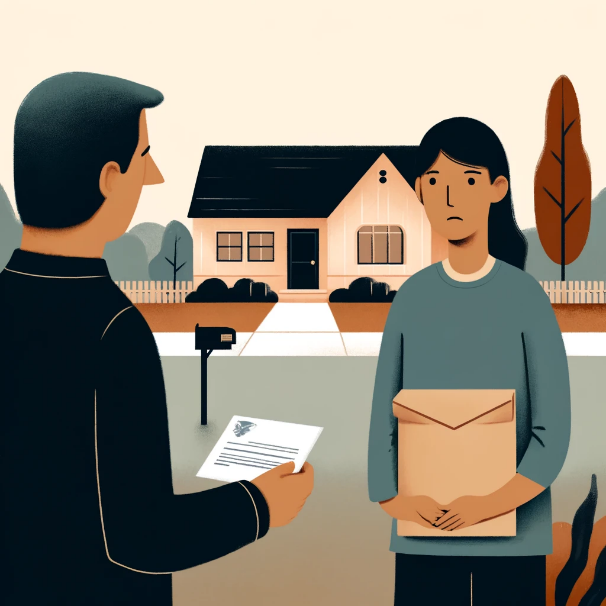
Austin Protective Order Lawyer
Get Legal Help If a Protect Order Has Been Filed Against You

A protective order is a legal tool designed to prevent family violence by setting specific restrictions on the person it is issued against. If you are facing a protective order in Austin, understanding what it means and how it affects you is crucial.
If you are facing a protective order in Austin, Texas, it's important to understand your legal rights and options. The criminal defense lawyers at Cofer & Connelly, PLLC can help. Contact Cofer & Connelly, PLLC by calling (512) 991-0576 or contacting us online for a consultation with a protective order lawyer in Austin.
Definition and Purpose of Protective Orders
Protective orders are legal tools that aim to protect individuals from harm or harassment. They can restrict a person’s actions, such as contacting or coming near someone. If you are subjected to a protective order, it means a court has determined there is a reason to limit your actions to protect another person’s safety.
Legal Basis for Protective Orders in Texas
In Texas, the Family Code outlines the legal basis for protective orders. At the end of a hearing for a protective order, the court must decide whether family violence has occurred. If the court finds that family violence has happened, it must issue a protective order against the person who committed the violence. Additionally, the court may issue a protective order that applies to both parties if it serves the best interest of the protected person or their family.
The court typically issues separate orders for each party involved if both are required to do or refrain from doing certain acts. This means that each person receives their own order, ensuring that each party understands the specific conditions they must follow.
Types of Protective Orders and Their Provisions
Protective orders can vary in what they require or prohibit. A protective order may include several provisions. The court can prohibit a person from removing a child from the care of someone named in the order or from the court’s jurisdiction. It can also stop a person from selling or transferring property that is jointly owned, except in the usual course of business. Additionally, the court may grant one party exclusive possession of a residence and may direct another party to leave if the residence is jointly owned or leased.
The court may also set terms for child custody and visitation, require support payments for a child or spouse, and assign possession of certain property to one party.
If the court finds that you have committed family violence, it can order you to take specific actions to prevent further violence. This may include attending a program for battering intervention and prevention (BIPP), undergoing counseling with a licensed professional, or refraining from specific acts such as communicating with the protected person in a threatening manner, going near their residence or workplace, and possessing a firearm.
A protective order can also include provisions for the separation of a wireless telephone service account. If the protected person is the primary user of a wireless number associated with your account, the court can order the separation of that number from your account.

What is the Process of Obtaining a Protective Order in Texas?
To obtain a protective order, an individual applies for it. This process starts with filing an application in court. The court will then schedule a hearing to determine if family violence has occurred. The court must find that family violence has occurred before issuing a protective order. If the court finds that family violence has happened, it will issue a protective order.
Once the application is filed, the respondent (the person the order is against) must be notified of the hearing. If the respondent does not attend the hearing but has been properly served with notice, the court can still issue a protective order. This means that even if the respondent does not show up, the protective order can still be granted if they are given proper notice.
After the hearing, if the court decides to issue a protective order, it will be delivered to the respondent. The order can be delivered in different ways, such as in person in open court, by mail, or as specified by court rules. If the respondent is present at the hearing, the order is usually handed to them directly. If not, the court will mail the order to the respondent and provide a certified copy to the applicant.
Additionally, the court will also notify local law enforcement agencies about the protective order. The court clerk must send a copy of the order to the appropriate police chief or sheriff, depending on where the person protected by the order lives. This is so local law enforcement is aware of the order and can help enforce it.
Duration and Modification of Protective Orders
A protective order in Texas is usually effective for up to two years. However, in some cases, the court can issue a protective order that lasts longer than two years. This happens if the person the order is against has committed a felony involving family violence, caused serious bodily harm, or has been subject to multiple protective orders before.
If you are under a protective order, you can ask the court to review it after one year from the date it was issued. You may also ask for a review every year if the protective order was issued for longer than two years. The court will decide if there is still a need for the order based on the evidence presented. If you are still considered a threat, the order will remain in place.
If you are in jail when the protective order is supposed to expire, the order will be extended. It will then expire one year after your release if you were sentenced to more than five years, or two years after your release if you were sentenced to five years or less.
What Are the Consequences for Violating a Protective Order?
If the court finds that the respondent violated the protective order, it can issue a new protective order. This applies even if the original order has expired, as long as the violation occurred while the order was still in effect.
Violating a protective order can lead to criminal penalties. A person who violates the order can be fined up to $500, jailed for up to six months, or both. If the violation involves committing an act of family violence, the consequences can be even more severe, including possible felony charges and prison time.
The court can also enforce requirements for counseling or programs aimed at preventing future violence. Anyone ordered to attend a program must provide proof to the court that they have started and completed the program. Failing to comply with this requirement can result in being held in contempt of court, which carries additional penalties.
These measures are in place to protect victims and to hold those who violate protective orders accountable. It's important to understand the serious consequences of violating a protective order and to comply with all terms set by the court.
Some Potential Defenses for Protective Order Violations
Lack Of Knowledge
Someone who has been accused of violating a court order in a family violence case must have knowingly or intentionally violated the order. If it can be shown that the individual was not aware of the specifics of the court order or the bond conditions, this could serve as a defense. Additionally, if the court order was not properly issued, or if it was vague or ambiguous in its terms, this could be grounds for a defense.
Unintentional Violation
If the actions that constituted the alleged violation were unintentional or accidental, this could be a viable defense. For example, inadvertently being in a prohibited area without the intent to violate the order could be an excusable defense.
Lack Of Evidence
The prosecution must prove the violation beyond a reasonable doubt. If there is insufficient evidence to meet this standard, the defense can argue for the dismissal of the charges.
How Can a Criminal Lawyer Help With an Order of Protection?
When you face a protective order, a criminal defense lawyer helps you understand the legal process and what to expect. They guide you through each step, from the initial hearing to the final decision. A lawyer explains your rights and helps you understand the possible outcomes. They also prepare you for court appearances, ensuring you know how to present yourself and respond to questions.
Your lawyer will handle all communication with the court and the other party involved. They make sure that all paperwork is filed correctly and on time. This can be crucial in protecting your interests and avoiding mistakes that could harm your case.
A lawyer can help you understand the conditions of the protective order and what you can and cannot do. They provide advice on how to comply with the order to avoid further legal issues. If needed, they can also assist in seeking modifications to the order to better suit your situation.
Frequently Asked Questions
What Is A Violation Of A Court Order In A Family Violence Case?
A violation of this aspect of Texas state law occurs when someone knowingly or intentionally disobeys specific conditions of a bond or court order related to family violence, sexual assault, stalking, or similar offenses. This includes actions like communicating with a protected individual in a prohibited manner, going near their residence or workplace, possessing firearms, or tampering with monitoring systems.
Are There Different Levels Of Charges Under The Law?
Yes, the severity of the charge can vary. Generally, this kind of violation is classified as a Class A misdemeanor. However, it can escalate to a felony in cases of repeat offenses or if the violation involved an assault or stalking.
Can An Order From Another State Be Enforced In Texas?
Texas law recognizes orders issued by other jurisdictions, under certain circumstances. Therefore, it’s important to avoid assuming that you can’t be held responsible for a violation of an order issued by another state simply because you’re located in Texas now.
Is It Possible To Defend Against Charges Of Violating A Court Order?
Yes, there are various defense strategies that can be employed, such as lack of knowledge, unintentional violation, invalidity of the order, or insufficient evidence. The effectiveness of each defense depends on the specifics of an individual’s case.
What Should I Do If I'm Charged With Wrongdoing?
Contacting a skilled criminal defense attorney is crucial. A skilled criminal defense lawyer can help you understand the charges, the potential consequences, and the legal options available to you. A defense attorney can also represent your interests in court and work to achieve a favorable outcome on your behalf.
Cofer & Connelly, PLLC Austin Criminal Defense Lawyers
If you have been accused of violating a court order related to family violence under Texas law, it's crucial to seek representation from an experienced criminal defense attorney immediately. The experienced criminal defense lawyers at Cofer & Connelly, PLLC are equipped to handle cases involving violations of court orders in family violence, child abuse, sexual assault, and related matters.
Contact Cofer & Connelly, PLLC at (512) 991-0576 or online for a consultation regarding your case. Our team is ready to support and help you through every step of the legal process.

-
"Excellent all around. Highly recommend."W. N.
-
"I am eternally grateful for all of the efforts they put in to go above and beyond for everyone they help."Former Client
-
"They really listen to and care about their client's needs and consistently fight for the best outcome! I am eternally grateful for all of the effort they put in to go above and beyond for everyone they help."C.D.
-
103 Years of Experience
-
32,000 Cases
-
357 Trials





















